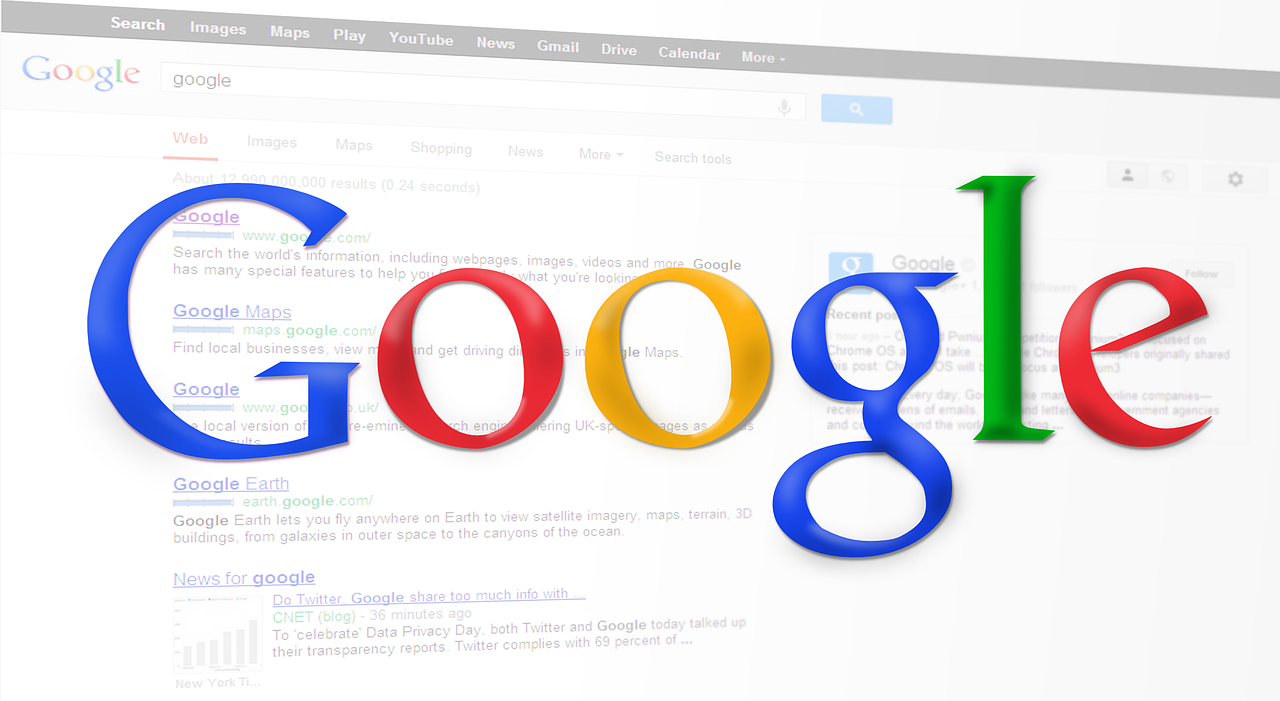
Google again changes the rules of the game SEO
If the river makes a noise its because water is running. Since the beginning of the year Google has been restless, testing changes, updating algorithms, scaring webmasters, guessing new ways to improve the quality of their results, and in passing their benefits. I will analyze what has happened in this time, how it has affected the results and what can be done in the future of SEO.
As if this year 2012 was not already quite black with the Mayan apocalypse waiting for us in December, Google seems determined that the end of the world begins with its search engine, at least the SEO world to which many of us are addicted and on which so many depend.
 Those of Mountain View, aware of their supremacy practically worldwide, and in countries like Spain, undisputed leaders with 98% of the searches, do not exactly look for consensus when defining what a quality page is or what parameters are the appropriate when evaluating a website.
Those of Mountain View, aware of their supremacy practically worldwide, and in countries like Spain, undisputed leaders with 98% of the searches, do not exactly look for consensus when defining what a quality page is or what parameters are the appropriate when evaluating a website.
The grace of SEO
This is their game, they know it, and they do what they want when they want. This time they have broken the deck again and have released a new one. Those of us who like to play with them have to guess what the game is about this time and start learning the rules again to be able to bet again and have an opportunity in front of the bank.
As much as it disgusts some, here lies the grace of SEO and its magic, always in constant evolution, forcing us to be the latest if we want to have options. Make no mistake, due to this instability in the sector, the best positioning agencies take advantage of these changes thanks to their experience, their resources and their ability to adapt. That SEO is a difficult profession benefits the true professionals and distinguishes them from the rest.
Where does all this history of changes in the algorithm come from?
Google, in its effort to improve the quality of its search results, is continuously implementing changes and updates to its algorithms. You can take a look at all the changes that the search engine introduced in 2011. The truth is that the quality of the SERPs (Seach Engine Result Pages) from Google has been questioned for a long time and gives the impression that lately they are giving sticks of blind.
And go with the sticks, since the first coming of Google Panda back in February of last year, there have been many who have lost everything on the internet and, in more occasions than Google would recognize, have paid fair for sinners.
Let’s review all the changes, adjustments, optimizations and announcements that Google has been doing since the beginning of the year:
January 2012
Google announces more than 30 changes compared to the previous month among which are optimizations in the search and detection of quality images and improved and more relevant site-links.
This month also launched the controversial personalization of its results based on the social data of users logged in with their Google Plus accounts, although later, when faced with complaints, it adds a button that allows it to be deactivated at will.
The day 18 Google Panda is updated to version 3.2 without being very clear the news introduced beyond fixing previous messes.
The next day announces penalties for websites with too many ads above the content, something that conflicts with the recommendations of Google Adsense to put as many more ad units better.
February 2012
Google emphasizes Panda’s new influences in the main index and applies parameters to take into account page load speed, content update frequency and check spelling errors.
This month came the update called Venice that came to reinforce the presence of local results, in some cases literally flooding the first page.
Finish the month with the Google Panda 3.3 update and 40 new quality indicators implemented.
March 2012
Google gives us some clues about the quality and functioning of searches through a video that shows that Google is getting smarter. Close the month with the Panda update 3.4 and noting that it will affect 1.6% of the results.
April 2012
This has been the most active and relevant month in terms of what it has meant for many websites that have been seen, from one day to the next, condemned to the infernos or elevated to the first celestial positions of the search engine.
They started by notifying about 40 new changes in Panda 3.4 among those that highlighted some strange insinuations about the way they value the anchor text of the links.
In the middle of the month they screwed up some legitimate websites with parked domains and had to solve it quickly in response to the claims of the furious webmasters affected.
On the 19th, the update to Panda 3.5 was silently launched, culminating on the 24th with the mother of all the updates. The one that the own Google began calling “Penalization by optimization” derived in “Update of the WebSpam” to end up denominating it finally “Penguin Update”
Supposedly this update is intended to combat the spam that populates the Google search results. And although it is true that for certain searches the Mountain View have done a good job, it is a fact that other results have worsened a lot since the algorithm has failures and has also affected pages that had not incurred any technique considered as spam.
But what is this about the Penguin?
Although it is still early and half the world SEO is investigating the issue, there are some data
that we can venture as possible causes of a website has been affected:
- Keyword Stuffing or on optimization of keywords in the contents of a web page.
- Abuse of anchor texts on optimized to link the internal pages of our site.
- Duplicate contents.
- Very low quality content.
- Blocks of related links or “friendly websites” full of keywords.
- Aggressive link exchange.
- Little or no variation of the anchor texts in the incoming links to the web.
- Detection of large quantities of links considered unnatural.
- Evidence detection of having participated in private networks of purchase and sale of links.
These are just some of the factors that alone or in combination with others may be behind a web affected by Google Pinguin, Google Panda 3.5 or a mixture of both.
The last two points on the links are being much debated because, if confirmed, would involve the entry into the scene of negative SEO. That is, anyone could maliciously generate thousands of links to someone from the competition so that Google will penalize it. Common sense tells us that Google would never consent to this type of practice but at the moment we can not do more than conjecture.
How to know if I have been affected by this change?
If you are reading this it is because you have surely been hit by the penguin. It is easy to check it by looking at your visitor statistics, if they have fallen drastically since April 24 you have all the ballots. If you have increased the traffic you are in luck because it is surely your competition that has fallen yielding your position.
If you still have not affected at this point you can breathe easy (at least for now) since Google has confirmed that the update became effective worldwide on day 24 almost simultaneously.
What happens if I am innocent?
If you are clear that you have not incurred any technique penalized by Google, you may have been the victim of another terrible search engine error.
Fortunately they are aware that the new algorithm has major flaws and therefore have made available to the affected webmasters, a form to declare innocent and manually check your site to verify that you are clean.
Okay, and if I’ve been bad, what can I do now?
Being very optimistic we can think that Google, aware of the failures of this new change, reconsidered some of the factors that it has taken into account and reversed, it would not be the first time. But let’s face it, that’s unlikely to happen, so you have to put on the cleaning uniform and start cleaning the website until it’s spotless facing Google.
For this we can start with:
- Check our message center in Google Webmaster Tools to check if you have warned us about something. They may tell us what we have done wrong and thus be able to resolve the situation first.
- Remove any traces of suspicious elements of Spam, such as too many internal and external links with the same anchor texts, high density of keywords, low quality texts that are not related to the links they contain and in general any block of links type “blogroll” “,” Friendly websites “,” links of interest “or similar.
- If you have included your website in a link exchange scheme try to get out of there and eliminate all the links that have generated you.
- If you have bought or rented links in a private blog network or in a “miracle” service to position your website in two days, try to eliminate all the links that have generated you. If it is not possible, collect some of these links to show Google that you are aware of the problem and that you will not do it again.
On this last point Google has announced that the Penguin update is fully automatic and can not be fixed by sending reconsideration requests. So, if you have eliminated all possible causes of your penalty, the Google bot itself will notice the next time you visit and will raise the barrier.
If you still do not find the cause or your case is more related to Panda 3.5, I recommend that you prepare a comprehensive reconsideration request detailing all the bad things that you have been able to do on your website to try to manipulate the results. Be very honest on this point and detail what solutions you have given, how you have corrected the infractions and promise that you will not do it again.
What they say out there
To date today there is a lot of rumor milling and little concrete data about the current status of the SERPs and the effects and consequences of Penguin.
Some say that now keyword domains (domains that contain a keyword) work better than before.
Others say that the blog labels are better positioned and that the web 2.0 type subdomains of blogger.com or wordpress.com are reaching the best results.
The reality remains that it is too early to ensure anything and that there is much to investigate still. We hope that this article has served at least to shed some light on this issue and give you an idea of where the shots may go. In any case, know that the world does not end in Google.
Forming part of an SEO agency would be illogical that it will not finish with pride saying that, except for two very specific cases, all Webpositercustomers have overcome Penguin without problems, indeed , many have benefited from the change by improving their positions notably .
I invite you to use the comments of this post to leave your doubts and I will try to help you with your specific cases.
Leave a reply